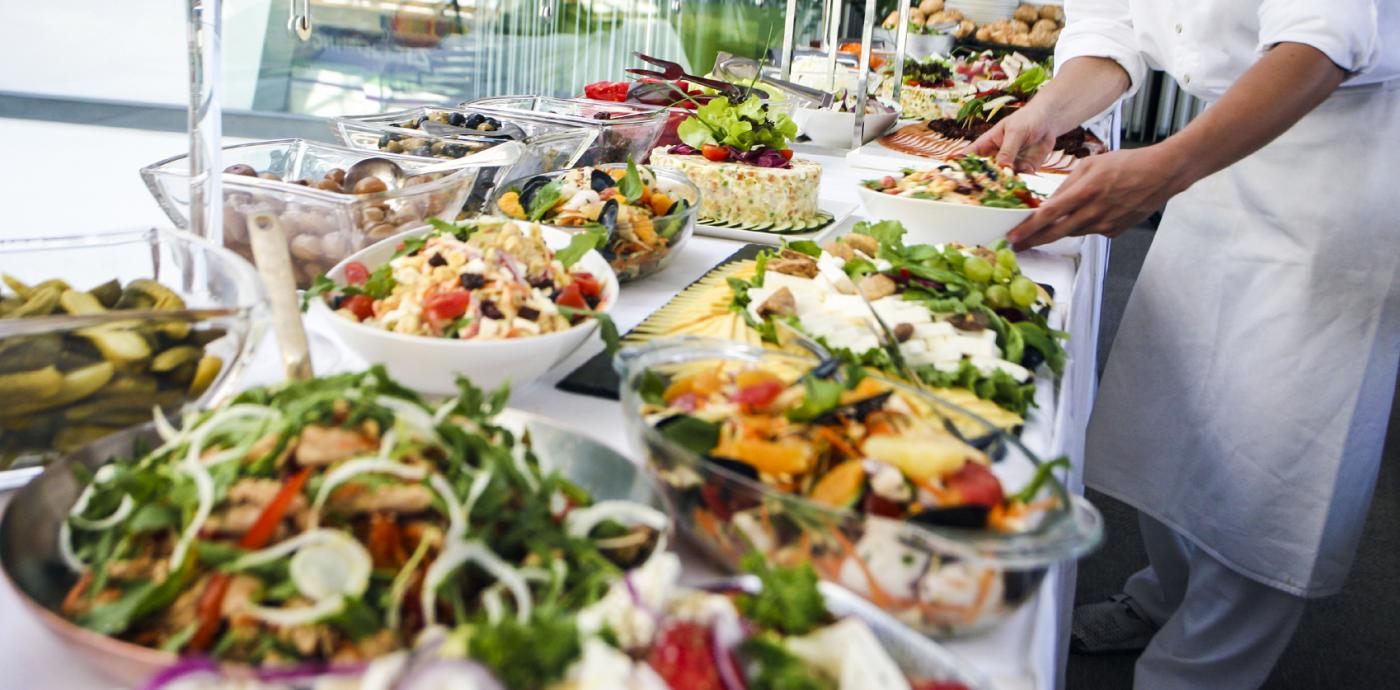Oldways has been invested in helping people put more plants on their plates for over 25 years. Science-based research continues to show the remarkable health benefits of reducing or eliminating meat from our diets and following dietary patterns that are built upon consumption of vegetables, fruits, whole grains, legumes, seeds, and nuts.
Since its founding in 2003, Meatless Monday has steadfastly pursued a similar mission and developed effective campaigns to inspire consumers to make dietary changes at least once a week. Their new food service implementation guides provide strategies that improve access to healthy food and emphasize the fact that meat reduction and its benefits for personal health and the health of the planet affect everyone, everywhere, including when we’re away from home.
Oldways caught up with Cherry Dumaual, PR and Partnerships Director for The Monday Campaigns, to learn more.
Q&A with Cherry Dumaual
Oldways: Over the past few years, what are some of the specific changes/trends you’ve seen in consumers interest in meatless meals
Cherry Dumaual: We have seen more openness to trying and cooking all kinds of plant-based foods, such as whole grains. I think the popularity of the Mediterranean Diet is a major influence. Plus, more consumers are seeking delicious meatless options in restaurants and food service venues, which have to meet the demand. Consumers want more than green salads. There’s heightened curiosity in international cuisines, exotic vegetables, and fruits as people learn about them through Googling and social media. Just think according to Grubhub data, the trendy plant protein, jackfruit, rose 33 percent in popularity for orders placed on Mondays since 2016.
OW: How did Meatless Monday decide what to include in the guides
CD: The Johns Hopkins Bloomberg School of Public Healths Center for a Livable Future, a scientific advisor for the Meatless Monday movement, surveyed food service operators to gain insights on how to develop the guides. Key insights included:
- Enhancing participation, sustainability, and long-term diet changes through culinary creativity.
- Making vegetarian options appealing and delicious to win over omnivores.
- Offering variety.
- Leveraging the popularity of global cuisines and flavors.
- Giving chefs time to test and perfect.
OW: How can someone who doesn’t work in food service make use of them
CD: Whether you’re a health professional or not, you can use the guides in reaching out to your favorite restaurant, school, or hospital in your community to suggest more plant-based menus. Or use the guides to start a conversation with the chef or food service provider in your corporate cafeteria to implement a Meatless Monday promotion. Meatless Monday does not mean taking meat of the menu in these venues; it simply means highlighting the delicious, nutritious variety of plant-based options.
One can’t just throw in tofu and expect customers to like it.
OW: Why did Meatless Monday decide to work on promotions for food service
CD: For more than three decades, Americans have been consistently spending more of their food dollars to buy meals prepared by culinary professionals and food service companies, a term that encompasses all eating and drinking places. About a year ago, we started spending more than half of our food dollars to have businesses prepare our meals for us. Non-commercial food service in colleges, hospitals, schools, employee dining halls is up over a third of all restaurant spending and even larger than full-service restaurants.
OW: Have you found one type of food service (i.e., schools, hospitals, restaurants, or corporate) to be more receptive to the guides than another If so, why
CD: Noncommercial dining operations overall are a strong opportunity, and there are receptive operations in every sector. They serve a group of diners who eat with them regularly and provide a better avenue to introduce and support new ways to eat, including eating less meat starting on Monday.
OW: What did your research with organizations show was the biggest barrier customers face when it comes to making changes in how they eat
CD: The biggest barrier customers face in incorporating more plant-based proteins, grains, and different varieties of foods is that, in several areas of the country, where beef consumption is high, focusing on plant-based foods is a big step from meat and potato diets. Customers also face the barrier of lackluster plant-based menus. Meatless Monday is working to get chefs/food service staff on board to plan and prepare creative menus. One can’t just throw in tofu and expect customers to like it. Chefs, management, everyone must be committed. If they are not, the food is not creative, nor will it attract or engage the customers.
For best practices on implementing Meatless Monday, your readers can download the Johns Hopkins report on Implementing Meatless Monday in Food Service Operations Best Practices at: https://www.jhsph.edu/research/centers-and-institutes/johns-hopkins-center-for-a-livable-future/_pdf/projects/HM/BAMCO-best-practices.pdf
OW: Can you share with us a few of your success stories with the guides
CD: The guides were recently published online so its too early to provide measurement of success by users. We do have success stories from restaurateurs and food service operations on campuses, hospitals, and corporate venues that implemented Meatless Monday a number of years ago, using our previous references.
Examples:
- NY-based Chef Jason Weiner promotes Meatless Monday in his restaurant, Almond. He said that making Meatless Monday part of the weekly routine at Almond was a natural choice. Having the emphasis on produce on a typically slow day of the week in the restaurant business allows them to serve a product that’s good for folks and good for the planet while also supporting the business.
- Cindy Mosley, associate director of dining services/dietitian at Hendrix College in central Arkansas, started using Meatless Monday as a resource, posting recipes for meatless stir-fry dishes near the wok bar. She found that students are now more often exploring veggies. They have even pushed for more kale and spinach.
- At Adobe Systems cafe in Lehi, UT, meat has been available but hard to and on Mondays because the dining operation there has been observing a Meatless Monday routine since this past spring that encourages diners to abstain from animal proteins for at least that one day each week. For unrepentant carnivores on those days, burgers can be had, and there is turkey and some other deli meats at the sandwich station, as well, but they’re not talked about, said Ted Mathesius, executive chef for management company Bon Appetit, which oversees the dining operation at the facility.
OW: How many institutions are currently working with Meatless Monday
CD: Founded in 2003, Meatless Monday is now implemented by thousands of food service operations in over 40 countries. We try to keep an updated list on our website: http://www.meatlessmonday.com/
Over here at Oldways, we’re excited by the work Meatless Mondays is doing, and encourage you to join the campaign! And for some more meatless inspiration, check out our hundreds of vegetarian recipes.
Georgia Orcutt, Coordinator, Supermarket RD Symposium and Oldways Vegetarian Network









Leave a comment